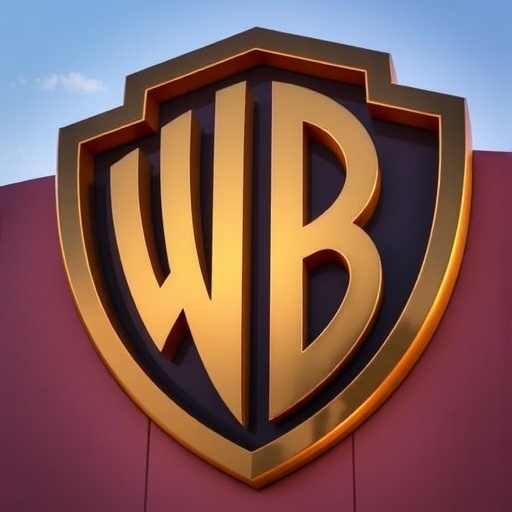Warner Bros. Discovery Confirms Buyout Interest Amid Bold Corporate Restructuring Push
In a stunning development that’s sending shockwaves through the entertainment industry, Warner Bros. Discovery has officially confirmed receiving multiple buyout offers, mere months after unveiling ambitious plans for a major corporate restructuring. The media giant’s disclosure, made during a recent earnings call, hints at a potential seismic shift in Hollywood’s power dynamics, as investors and rivals alike eye the company’s vast portfolio of studios, streaming services, and intellectual properties.
- Buyout Buzz Ignites After Restructuring Reveal
- Potential Suitors Line Up in the Media Merger Frenzy
- Restructuring Strategy Under the Microscope: Assets, Challenges, and Opportunities
- Stakeholder Reactions: From Wall Street Cheers to Hollywood Fears
- Charting the Path Forward: What Lies Ahead for Warner Bros. Discovery
Warner Bros. Discovery, formed from the 2022 merger of WarnerMedia and Discovery, Inc., has been navigating turbulent waters amid declining linear TV revenues and fierce competition in the streaming arena. The confirmation of buyout interest comes as the company pushes forward with its strategy to split into two separate entities: one focused on studios and streaming, and the other on non-fiction and lifestyle networks. This move, announced in late 2023, was intended to streamline operations and unlock shareholder value, but it now appears to have attracted unsolicited attention from potential acquirers seeking to capitalize on the company’s undervalued assets.
David Zaslav, CEO of Warner Bros. Discovery, addressed the buyout overtures directly during the call, stating, “We are always open to discussions that enhance value for our shareholders, but our primary focus remains on executing our restructuring vision.” This measured response underscores the delicate balance the company is striking between internal transformation and external pressures in a rapidly evolving media landscape.
Buyout Buzz Ignites After Restructuring Reveal
The timing of the buyout confirmations couldn’t be more poignant. Just six months ago, Warner Bros. Discovery shocked the entertainment industry by detailing its corporate restructuring blueprint, which involves divesting or spinning off underperforming assets to create two leaner, more focused businesses. The studio and streaming arm would house powerhouse franchises like DC Comics, HBO Max (now Max), and Warner Bros. Pictures, while the networks division would encompass Discovery Channel, HGTV, and Food Network.
Analysts point to this split as a catalyst for the sudden influx of buyout interest. According to a report from media research firm Ampere Analysis, Warner Bros. Discovery’s market capitalization has dipped to around $20 billion, a fraction of its peak post-merger value, making it an attractive target for consolidation-hungry players. “The restructuring has essentially put the company up for grabs,” noted Wedbush Securities analyst Dan Ives in a recent note to clients. “By separating the high-growth streaming assets from legacy cable, they’ve created modular pieces that could be snapped up individually or as a whole.”
Financial metrics underscore the vulnerability. In the latest quarter, Warner Bros. Discovery reported a net loss of $1.07 billion, driven by $9.1 billion in goodwill impairments related to its TV networks. Free cash flow, however, improved to $2.7 billion for the year, providing a glimmer of stability amid the chaos. Streaming subscribers for Max reached 97.6 million globally, up 7% year-over-year, signaling resilience in the digital realm even as traditional media revenues plummeted 11%.
Insiders reveal that the buyout inquiries began surfacing shortly after the restructuring announcement at a Warner Bros. Discovery board meeting in December 2023. Board members, including influential figures like Samuel DiPiazza and Paula Price, reportedly weighed the strategic merits of entertaining offers versus proceeding with the split. “It’s a high-stakes poker game,” one anonymous executive told Reuters. “The buyouts could provide a quick exit for frustrated investors, but they risk diluting the company’s creative legacy.”
Potential Suitors Line Up in the Media Merger Frenzy
Speculation is rife about who might be behind the buyout interest targeting Warner Bros. Discovery. In an entertainment industry already reeling from megamergers like Disney’s acquisition of Fox and Paramount’s ongoing sale talks, several names are emerging as frontrunners.
Tech behemoths top the list. Alphabet Inc., Google’s parent, has been rumored to eye Warner’s content library to bolster YouTube’s ad revenues and compete more aggressively in streaming. With Google’s $2 trillion market cap, a $20-30 billion deal for Warner Bros. Discovery would be feasible, analysts say. “Google needs premium Hollywood IP to fuel AI-driven content recommendations,” explained Forrester Research principal analyst James McQuivey. “A buyout here would supercharge their entertainment ambitions.”
Another contender is Amazon, which has aggressively expanded into media through Prime Video and MGM Studios. Sources close to the matter indicate Amazon has held preliminary discussions, viewing Warner’s sports rights— including NBA and MLB packages—as a perfect fit for Thursday Night Football expansions. Amazon’s recent $8.5 billion investment in Anthropic for AI could also integrate with Warner’s vast archives for next-gen storytelling tools.
Don’t count out traditional players either. Comcast, owner of NBCUniversal and Peacock, could see a Warner Bros. Discovery acquisition as a way to fortify its position against Netflix and Disney+. “Consolidation is the name of the game in cable and streaming,” said MoffettNathanson media analyst Michael Nathanson. “Comcast might pay a premium to absorb Warner’s linear assets before they depreciate further.”
Private equity firms like Apollo Global Management, which has a history with media deals including Yahoo, are also circling. A leveraged buyout could slice Warner into sellable parts, with HBO Max potentially fetching $15 billion alone. However, regulatory hurdles loom large; the FTC and DOJ have scrutinized past media mergers, and a Warner deal could face antitrust probes given the concentrated power it would create.
To illustrate the competitive landscape, consider recent transactions: In 2023, Skydance Media invested $400 million in Paramount, while Blackstone acquired a stake in Hipgnosis Songs Fund for music rights. Warner Bros. Discovery’s situation fits this pattern of distressed assets drawing opportunistic bids amid corporate restructuring waves.
Restructuring Strategy Under the Microscope: Assets, Challenges, and Opportunities
At the heart of this buyout drama is Warner Bros. Discovery’s multifaceted corporate restructuring effort, a response to years of financial strain and industry disruption. The plan, codenamed internally as “Project Split,” aims to address a debt load exceeding $40 billion while adapting to cord-cutting trends that have eroded cable subscriptions by 20% since 2020, per Nielsen data.
The studio division, projected to generate $12 billion in annual revenue post-split, boasts enviable assets: Warner Bros. Motion Picture Group, which delivered hits like The Barbie Movie ($1.4 billion box office) and Dune: Part Two (over $700 million globally). DC Studios, rebooted under James Gunn and Peter Safran, promises a revitalized superhero universe with upcoming releases like Superman in 2025. Meanwhile, Max’s original content slate, including The Last of Us Season 2, has earned critical acclaim and boosted engagement metrics by 15%.
Challenges persist, however. The networks segment, expected to bring in $10 billion, faces secular decline; ad revenues fell 12% last quarter, and affiliate fees from pay-TV operators like Charter Communications are under negotiation. Warner Bros. Discovery’s recent strikes with SAG-AFTRA and WGA cost $500 million in lost production, exacerbating cash flow issues.
Opportunities abound in the streaming pivot. Warner Bros. Discovery’s joint venture with Paramount and NBCU to form a bundled streaming service could counter Netflix’s dominance, which holds 260 million subscribers worldwide. Integration of Discovery’s reality TV with HBO’s prestige dramas has already increased viewer retention by 22%, according to internal metrics.
Employee impacts are significant too. The restructuring involves 4,000 job cuts announced in 2023, with more potentially on the horizon if a buyout materializes. Unions like IATSE have voiced concerns over intellectual property rights in any deal, emphasizing the need for protections in Hollywood’s entertainment industry.
From a financial engineering perspective, the split could yield $5-7 billion in synergies through cost savings on overhead and targeted investments. Moody’s Investors Service recently upgraded Warner Bros. Discovery’s credit rating to B2, citing the restructuring’s potential to stabilize operations amid buyout speculation.
Stakeholder Reactions: From Wall Street Cheers to Hollywood Fears
The news of buyout interest has elicited a spectrum of reactions from stakeholders invested in Warner Bros. Discovery’s fate. On Wall Street, shares surged 8% in after-hours trading following the earnings call, reflecting optimism about premium valuations in a sale scenario. “This validates our thesis that Warner is undervalued,” said JPMorgan analyst Alexia Quadrani, who maintains a buy rating with a $15 target price.
Shareholder activists, including Vanguard and BlackRock—which hold 15% of the company combined—have pushed for accelerated corporate restructuring to maximize returns. At the annual meeting in June 2024, investors approved executive compensation packages tied to performance milestones, including debt reduction targets.
In Hollywood, the mood is more cautious. Filmmakers and talent agencies fear a buyout could lead to further content austerity. “We’ve seen what happens in mergers—projects get shelved, creatives get sidelined,” said a representative from CAA, echoing sentiments from the 2019 AT&T-Time Warner fallout. Director Patty Jenkins, known for Wonder Woman, tweeted, “Warner Bros. is more than balance sheets; it’s the heartbeat of storytelling. Any buyout must preserve that soul.”
Analysts from Deloitte’s media practice highlight broader entertainment industry ripple effects. “A Warner sale could trigger a domino effect, pressuring Disney and Paramount to explore their own deals,” forecasted senior vice president Sarah Willingham. Consumer advocacy groups like Public Knowledge warn of reduced competition, potentially leading to higher streaming prices—Max’s ad-free tier already at $15.99/month.
Labor leaders are mobilizing. The Hollywood Basic Crafts union, representing 40,000 workers, has scheduled talks with Warner Bros. Discovery executives to safeguard jobs amid the uncertainty. “Corporate restructuring shouldn’t come at the expense of the people who build this media empire,” stated union president Carol Lombardini.
Internationally, the implications extend to Europe and Asia, where Warner’s global distribution arm generates $4 billion annually. Regulators in the EU, fresh off blocking Adobe’s Figma acquisition, may scrutinize any cross-border buyout for monopolistic risks.
Charting the Path Forward: What Lies Ahead for Warner Bros. Discovery
As Warner Bros. Discovery deliberates its next moves, the entertainment industry braces for transformative possibilities. If the company opts to engage with buyout suitors, due diligence could extend into 2025, involving antitrust reviews and financing arrangements. A full acquisition might value the entity at $25-35 billion, per Barclays estimates, offering a windfall for shareholders weary of prolonged volatility.
Should the board reject offers and proceed with the split, the two new entities could debut by mid-2025, each with dedicated leadership and IPO potential. The studio/streaming company might pursue partnerships, such as deeper ties with Netflix for international licensing, while the networks arm explores direct-to-consumer apps to offset cable losses.
Innovation remains a wildcard. Warner Bros. Discovery’s $1 billion AI investment, including tools for script analysis and VFX optimization, positions it for efficiency gains regardless of ownership changes. Upcoming tentpoles like Avatar: Fire and Ash co-production with Disney could bolster box office recoveries, projected to hit $50 billion globally in 2025 by Ernst & Young.
For consumers, the stakes are high: A buyout could accelerate bundled streaming options, lowering costs but limiting choices. Industry watchers predict intensified media battles, with Warner’s fate influencing everything from content diversity to ad tech advancements.
Ultimately, this chapter in Warner Bros. Discovery’s saga underscores the relentless evolution of the entertainment industry. Whether through corporate restructuring or a blockbuster buyout, the company’s decisions will reshape Hollywood for years to come, reminding us that in media, fortune favors the bold—and the adaptable.








